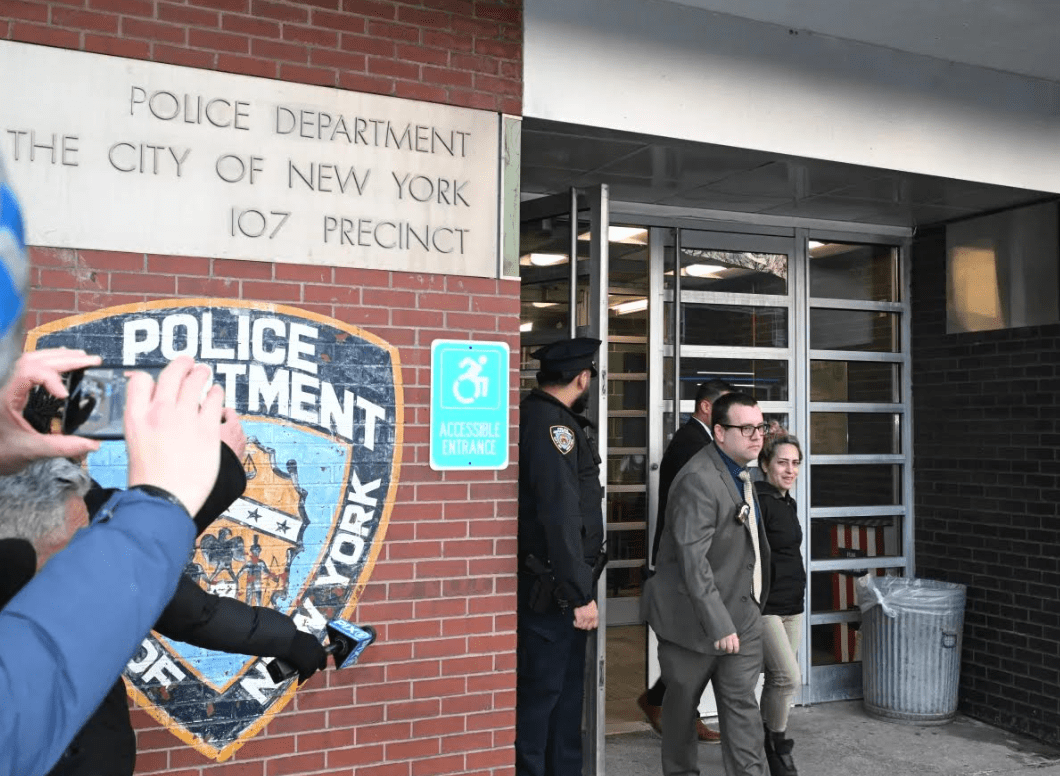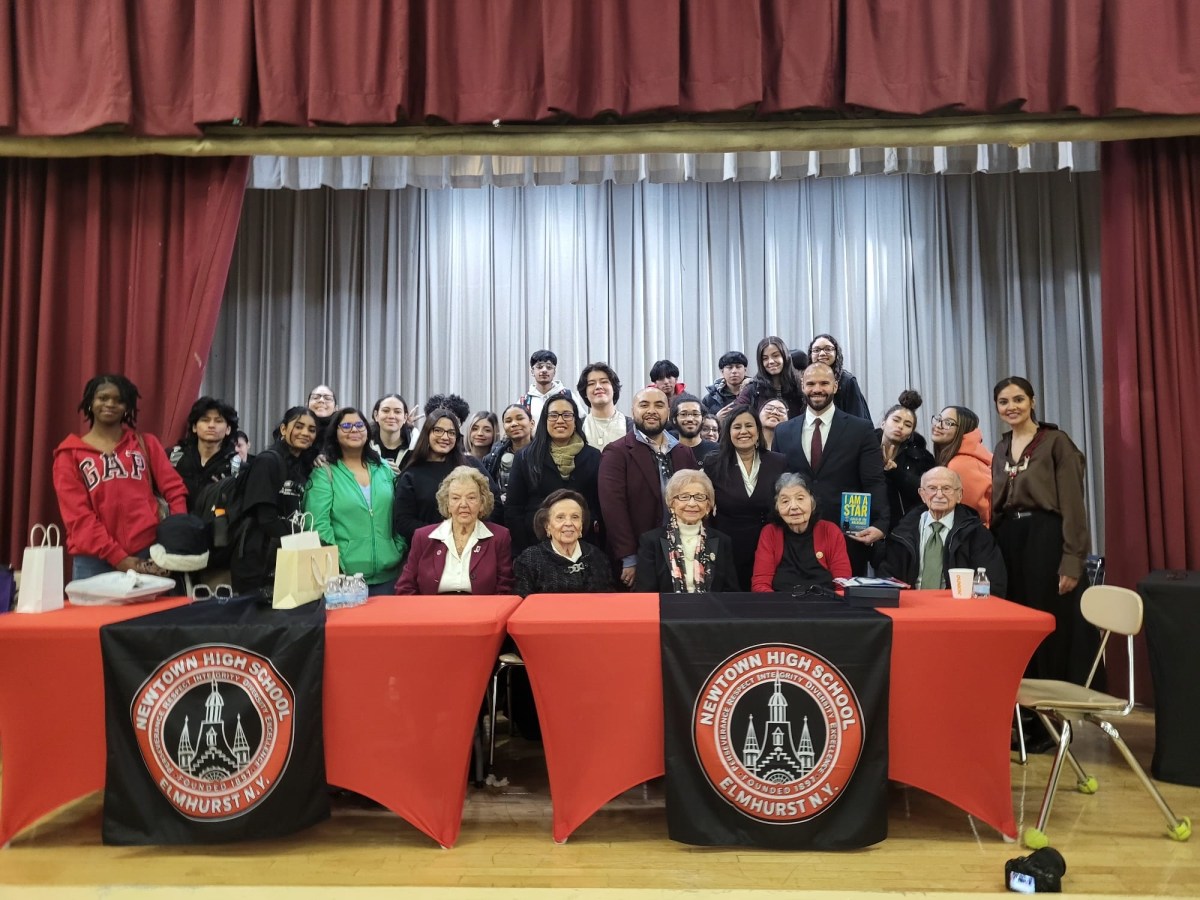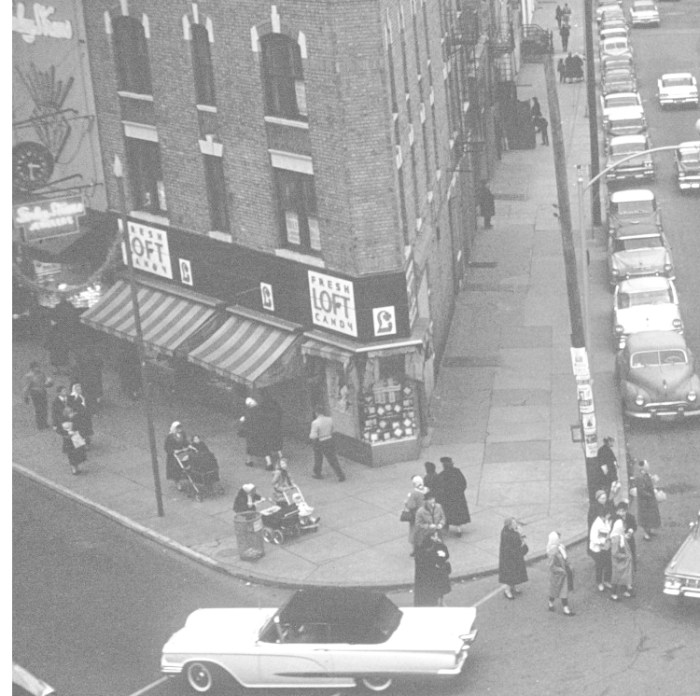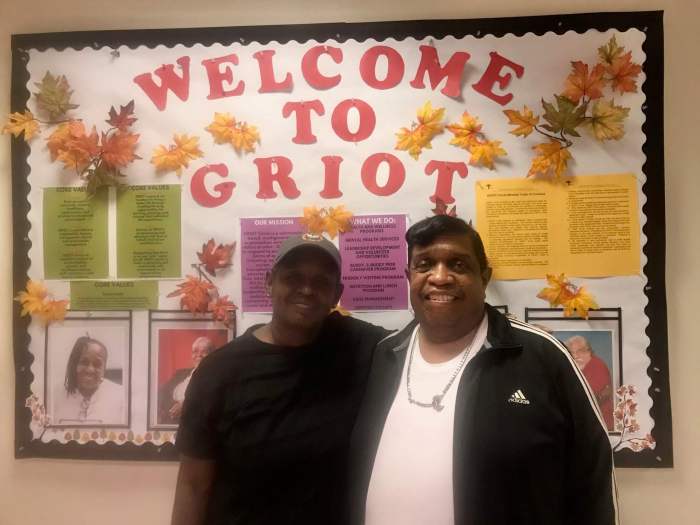
John Whitehead, right, with World Trade Center developer Larry Silverstein in 2005.
BY JOSH ROGERS | John Whitehead, a key figure who helped lead Downtown’s rebuilding efforts after 9/11, died of cancer Saturday at the age of 92.
Whitehead, the Lower Manhattan Development Corp.’s former chairperson, was also deputy secretary of State in the Reagan administration, but spent most of his career in Lower Manhattan rising up the ranks at Goldman Sachs to become its co-chairperson.
At the end of 2001, Gov. George Pataki named him to lead the newly-created L.M.D.C., which received $2.8 billion in federal money.
He’d often joke that he warned Pataki not to pick someone who’d end up “pointing his cane” at what went wrong in the rebuilding. At the corporation’s first working meeting in January 2002, Whitehead said he was leading “the only organization in history to get over $2 billion that we never asked for.”
Carl Weisbrod, a former L.M.D.C. board member who now heads the City Planning Dept., said without Whitehead, there probably would never have been an investment of about $150 million to fix up the East River waterfront.
“The funding for that was because of John,” Weisbrod told Downtown Express. “John embraced it.”
Weisbrod, at the time, was president of the Downtown Alliance, which before 9/11, had worked with Community Board 1 on plans to improve the waterfront.
The responses to a request for East River plans had to be postmarked by Sept. 10, 2001, but because of the chaos that was to follow, it took weeks for the Alliance and the community board to receive them.
Weisbrod recalled showing the ideas to Whitehead, and said he had an immediate and pivotal ally.
The federal L.M.D.C. money was also to be used to oversee planning for rebuilding, and to build the 9/11 memorial — Whitehead was later founding chairperson of the memorial’s foundation — but community uses were permitted under the federal package. Weisbrod said Whitehead fought hard and won battles to make sure the L.M.D.C. money was spent to help all of Downtown.
Over the years, the corporation was routinely criticized in some quarters for paying too much attention to corporate interests, but that criticism rarely was directed at Whitehead, who received high marks for reaching out to the community.
“My fight at the time was over the structure. John Whitehead individually could not have been more responsive,” Alan Gerson, Lower Manhattan’s former Councilmember, said this week. “I’m confident he had a genuine concern for the entire community. He was a very decent human being.”
Gerson said he had no doubt that more money ended up going to help small businesses and lower income neighborhoods like Chinatown because of Whitehead’s efforts behind closed doors.
Similarly, Madelyn Wils, Community Board 1’s former chairperson who served with Whitehead on the L.M.D.C., said in a prepared statement that Whitehead was the “community’s partner.
“He supported funding all of the projects I pushed at L.M.D.C. i.e.: East River esplanade, Hudson River Park, community parks, the [W.T.C. arts center.] John helped me raise $16 million for the creation of Millennium High School by getting Goldman Sachs foundation to contribute the first $1 million….
“He always showed great warmth and empathy…” added Wils, now C.E.O. of the Hudson River Park Trust. “He had a great life and made an indelible imprint on all of us, particularly those of us Downtown….He was a great man with strong values and great integrity.”
Though he personified the Republican establishment, he did not shy away from criticizing his party’s leaders.
In 2005, when Gov. Pataki evicted cultural groups slated to move to the W.T.C., Whitehead said, “in all candor, I must report that most of our board, including its chairman, were quite distressed that a process which we had established two years ago with full public approval was not allowed to work its way through to conclusion,” the New York Times reported then.
He knew President George W. Bush, and had chances to meet with him about rebuilding efforts, but when he spoke at Millennium High School’s graduation in 2006, he suggested the students could and should become much better leaders than Bush.
“Where are the great leaders in the world today,” he asked. “There used to be great leaders everywhere. And if you want me to be specific, which I’ve always had the rudeness to do, I don’t believe that either of the two presidential candidates that ran against each other for office — were these the best two people in the whole United States?”
But rude was a word seldom used to describe Whitehead. Gregarious yet soft-spoken in nature, he was quick with a smile and usually seemed at ease with anyone he spoke with.
Weisbrod said Whitehead was independent and “tough when necessary,” but his civility was always apparent.
“John was one of the most extraordinary men I ever met,” he said, noting that before the better known parts of his career, Whitehead served in the Navy and helped liberate Normandy during World War II.
Born John Cunningham Whitehead on April 22, 1922 in Evanston, Ill., his father was laid off during the Depression and for a time, the family did not have much to eat, the New York Times reported in its obituary.
He graduated from Haverford College before joining the Navy during the war. Goldman Sachs hired him in 1947 and he spent most of his career there.
He is survived by his wife, Cynthia Matthews, two daughters and a son, two granddaughters, seven stepchildren, and 18 step-grandchildren, the Times reported.
Weisbrod, over 20 years Whitehead’s junior, said he recalled on an Outward Bound hiking trip to Powell Mountain in Colorado, Whitehead was in his 70s and had no trouble climbing the mountain, but “I was huffing and puffing and barely made it.”
Whitehead was a generous donor and many organizations have published paid notices on his behalf. Gerson, the former councilmember, said Whitehead befriended his late mother as they shared the same doctor the last years of their lives. Last year, Whitehead was one of the first contributors to Sophie Gerson Healthy Youth.


































